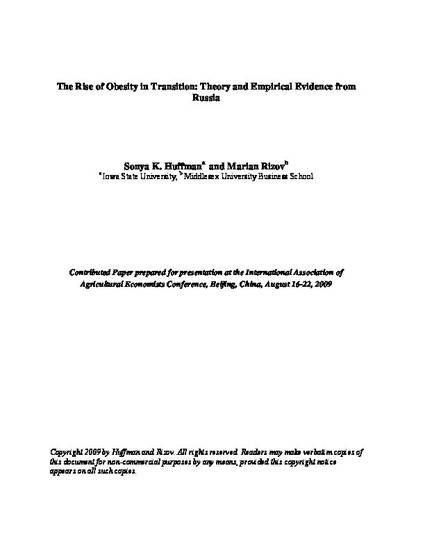
Since the early 1990s series of political and economic reforms have been implemented in transition economies. As a result, the population experienced dramatic changes in lifestyle and a significant decline in life expectancy. The adverse effects of transition were most severe in the Former Soviet Union. Several studies examine the reasons for the mortality crisis in Russia and other former Soviet republics (Brainerd and Cutler, 2005; Shkolnikov et al., 2004). Greater alcohol consumption and increased stress from the transition to a market economy had dramatically affected the lifestyle and diet of the population, and led to higher mortality in Russia. Furthermore, the authors find that rising human obesity has important health consequences and is a significant predictor of mortality.
Available at: http://works.bepress.com/sonya-huffman/28/

This is a Contributed Paper prepared for presentation at the International Association of Agricultural Economists Conference, Beijing, China, August 16-22, 2009.